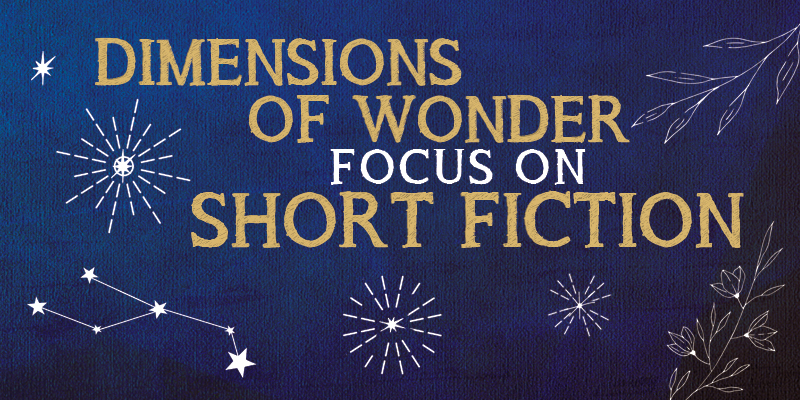The Stormy Age of SFF Magazines by Neil Clarke
When people proclaim that we’re experiencing a ‘‘Golden Age’’ for short fiction, I tend to look at them sideways. While we’ve seen an explosion of new markets over the last two decades, it’s never been a particularly healthy time for the overwhelming majority of them. For print editions, increasing postal and printing costs are eating away at profits. Those publishing online struggle face steeper challenges and often have unpaid or steeply underpaid staff. Despite having the highest readerships, simply not enough people are subscribing or supporting them, often much less than ten percent. From the outside, it must look a lot better for all of them than it is.
Despite continued growth in the number of publications in 2023, the field lost some notable publications and took some very significant hits from new storms that will continue rolling through for the next few years.
Twitter’s Slow-Motion Car Crash
When Elon Musk purchased Twitter in late 2022, there was concern about the future of a platform that had become the primary means of communication for several magazines. This was of particular concern among the publications that employ Kickstarter campaigns in their funding models. While Kickstarter provides a method to contact people who have supported your previous campaigns, there’s a significant amount of supporter churn with annual campaigns. Both new and recurring campaigns leaned heavily on Twitter to bring in new supporters. Even when Twitter was at its peak, however, recurring campaigns often found it challenging to maintain or increase their funding levels from year-to-year. The model demonstrated weaknesses in producing growth, but it was enough to sustain several publications.
Instead of a collapse, 2023 has been witness to a stumbling Twitter, now called X, and the rise of Mastodon, Bluesky, and others as alternatives. Magazine follower counts on Twitter have mostly remained above 2022 highs, but engagement – the true metric of its value – is reportedly down. The number of people on other platforms is low by comparison, but their engagement levels are higher.
While this is a disruption, it’s one that may ultimately work to the long-term advantage of magazines. Yes, posting content and fielding replies across multiple sites is a bit more work, but there are benefits to being on new platforms, among which is the potential for discovery by someone previously unfamiliar with their work. Even if the total number of followers remains lower across the alternatives, the higher engagement rates and ability to reach new audiences will be a significant win. Taking advantage of a more diverse range of options further insulates publications from being impacted by the next social media collapse.
What you can do: If you follow a magazine on Twitter and move somewhere else, follow them there, too. Sign up for their mailing list if they have one.
ChatGPT (and Bard and Jasper and…) ‘‘Writing’’
The art community had already been dealing with its own ‘‘AI’’ issues well before the launch of ChatGPT in November 2022. Both situations demonstrated not only the power of these models, but also the questionable ethics embraced to train them. The writing community wasn’t immediately affected, but by early 2023 there were signs that short fiction would be. At Clarkesworld, we were among the first to suffer the consequences, as hundreds of machine-generated submissions swamped the process we use to acquire new stories. In February, we were forced to temporarily close and suddenly found ourselves the subject of national and international media attention. Others, such as Asimov’s and F&SF, also reported significant increases in submissions.
The initial wave of generated stories came from outside the SFF writing community and was driven by ‘‘side-hustle’’ money-making schemes featured on YouTube, TikTok, and blogs. The bulk of these submissions have been largely focused on more established magazines that have always-open submission policies that are particularly welcoming to new writers. Newer publications or those with limited or infrequent submission windows have been less likely to be noticed by these ‘‘writers.’’ Should they discover Duotrope or the Submissions Grinder, however, things could change very quickly.
Despite what the hype would suggest, these tools currently produce substandard fiction. The immediate problem is just how quickly it can be produced. In this way, it’s much easier to describe these works as spam. Detection, however, is complicated. While many tools claim to have high success rates at detecting generated works, they are prone to false negatives and false positives, particularly when assessing a work written by someone whose first language isn’t English. Human review is still required, and that has significantly increased the workload for some editors and their staff.
Even if the quality of these works was high enough for publication, various legal and ethical issues remain unresolved. Ownership of these works is undetermined, which suggests that signing contracts for them could be problematic. The US Copyright Office has even refused to grant copyrights for generated works. And then we have the issue of how these models were trained on data scraped from the internet (and apparently some from pirated book archives) without the approval of their authors or publishers. Several cases are currently making their way through the courts… and that’s just the US. Each country is going to come at this from a different angle, further complicating matters. As a result of these issues, most magazines have adopted ‘‘no AI’’ submissions policies. Those making exceptions have often faced public outrage.
Online publishers have also been concerned about their ability to prevent further scraping thereby protecting their author’s works from being used as training materials for new or improved models. Unfortunately, the ‘‘AI’’ industry has approached the issue with the belief that providing training data should be opt-out, meaning if you don’t know how or don’t do it, well, too late, too bad. They’ve also proven uncooperative when it comes to honoring requests for the removal of content previously scraped. There is a fear that the untrustworthy nature of the ‘‘AI’’ companies may lead to a reduction in the amount of fiction authors are comfortable placing or leaving online, disrupting the dominant model of access to short fiction that the community has become accustomed to.
These tools and issues surrounding them will continue to evolve for the foreseeable future, likely complicating the work done by an increasing number of magazines, publishers, and authors. Many of the potential solutions offered by our community create roadblocks for new and foreign authors, both of which are crucial to the future of not only short fiction, but the genre as a whole. It’s important that we work to ensure their continued involvement in the process and find ways to keep already overloaded magazine staff from burning out under the growing pressure.
What you can do: Contact your government representative and advocate for ‘‘opt-in’’ requirements for ‘‘AI’’ training and copyright not being extended to generated works.
Amazon Cuts Off Subscriptions
In December 2022, Amazon informed publishers of their intention to end the sale of all magazine subscriptions. While only a dozen SFF magazines were included in this program, they were among some of the most well-known and recognized in the field. It was not only a gateway to the largest ebook platform in the world, it was a significant source of income for many of those participating. It could be argued that much of the modern renaissance of short fiction magazines can be at least partially attributed to this program’s impact on their reach and easy access.
Amazon has not given more than a vague rationale for ending the program, but they did offer magazines an opportunity to participate in their Kindle Unlimited magazines program. Unfortunately, the switch comes with a significant revenue cut – half or less – for their continued presence on Amazon. To further complicate matters, Amazon has never shared subscriber contact information with publishers and refused to make exceptions in this situation. This left magazines without the ability to directly contact and explain the situation to their readers. Moving subscribers to a new platform is difficult under the best of conditions. Losses, potentially significant ones, are expected. (Amazon did send subscribers an email with a link to magazine’s sites when the program finally closed.)
The final issues in the Kindle Periodicals program were delivered to subscribers in early September, but it may take a few months for publishers to fully assess the damage and quantity of subscribers lost in the process. The Kindle Unlimited payments will buy them some extra time (into 2024, by my estimate), but we have already learned that Fantasy Magazine will close as a consequence of these changes. The others will feel the bite to varying degrees, with those in the program the longest having the most to lose.
What you can do: The remaining magazines impacted by this change are Asimov’s, Analog, Apex, Clarkesworld, F&SF, Lightspeed, Nightmare, The Dark, and Uncanny. Visit their websites and find out how best to subscribe. If you have Kindle Unlimited, open and read a few pages there. If it isn’t actually read, the magazines don’t get paid.
Events like these often cause some to proclaim the death of short fiction. They’ve never been right before and are ridiculously unlikely to be true this time as well. These storms are indeed taking a toll on our magazines and the people that run them. Some may break and some may fall. Each loss impacts the morale of those still fighting the tide and sometimes it inspires new people to dive in. My magazine colleagues are a battle-hardened lot that love the work they do and will fight to keep their publications alive. Don’t be fooled by the outward appearances, though. It’s not golden and it needs your help now more than ever if we are to keep what is clearly treasured.
 Neil Clarke (<neil-clarke.com>) is the multi-award-winning editor of Clarkesworld Magazine and over a dozen anthologies, including the Best Science Fiction of the Year series. An 11-time finalist and the 2022 winner of the Hugo Award for Best Editor Short Form, he is also the three-time winner of the Chesley Award for Best Art Director. In 2019, Clarke received the SFWA Kate Wilhelm Solstice Award for distinguished contributions to the science fiction and fantasy community. He currently lives in New Jersey with his wife and two sons.
Neil Clarke (<neil-clarke.com>) is the multi-award-winning editor of Clarkesworld Magazine and over a dozen anthologies, including the Best Science Fiction of the Year series. An 11-time finalist and the 2022 winner of the Hugo Award for Best Editor Short Form, he is also the three-time winner of the Chesley Award for Best Art Director. In 2019, Clarke received the SFWA Kate Wilhelm Solstice Award for distinguished contributions to the science fiction and fantasy community. He currently lives in New Jersey with his wife and two sons.
FOR MORE FROM OUR FOCUS ON SHORT FICTION ISSUE…
 While you are here, please take a moment to support Locus with a one-time or recurring donation. We rely on reader donations to keep the magazine and site going, and would like to keep the site paywall free, but WE NEED YOUR FINANCIAL SUPPORT to continue quality coverage of the science fiction and fantasy field.
While you are here, please take a moment to support Locus with a one-time or recurring donation. We rely on reader donations to keep the magazine and site going, and would like to keep the site paywall free, but WE NEED YOUR FINANCIAL SUPPORT to continue quality coverage of the science fiction and fantasy field.
©Locus Magazine. Copyrighted material may not be republished without permission of LSFF.









I’ve seen a lot of commentary on the state of short speculative fiction lately, which focuses on two areas:
A) Finding ways to reach the small number of existing paying readers through current channels that are being degraded or dismantled; or,
B) Reminding writers that they are readers, and that they should support the outlets they write for economically.
I’m deeply concerned that I do not see anyone offering a way forward for speculative outlets to reach:
1) New paying readers who are not actual or aspiring writers; or,
2) Fans of speculative fiction who are not yet readers.
There IS a Golden Age of Speculative Fiction right now for individuals who are taking advantage of low barriers to entry to launch publications and accrue the psychological income (and no financial income) of opening a magazine.
These new publications — many of which pay at or close to pro-rates — make the industry look vibrant.
To be sure, these short-lived publications often rely on donated labor, especially the labor of their editors-in-chief, who are driven into the ground physically and financially.
The other group enjoying a Golden Age are the digital marketplaces that make real money (like Amazon), selling fiction at the expense of everyone else in the industry.
There doesn’t seem to be any long-term viability for anyone else in this space.
I hope my assessment here is too pessimistic. I’d welcome people telling me I’m wrong and, more importantly, showing me numbers demonstrating that there is an economic path forward.
Otherwise, I’m not expecting Mr. Clarke to have the answers here, and I don’t blame anyone in this industry for not having solved this puzzle.
Still, I’d love to see some thoughts from creative businesspeople, who are also artists like Mr. Clarke, about how speculative fiction can reach new audiences to become an economically viable activity for editors and talented artists.
The content we produce is engaging, exciting, and essential. I have to believe there is a way to get people who are not its producers to pay for it or for the content to generate enough value for a third party to pick up the tab on its creation.
If I’m wrong — if speculative writing is an art form that doesn’t have a viable path toward profitability — nobody will die, but it would mean that this art form could become the sole domain of hobbyists. That would be awful, as it would diminish access to people whose views are important and, otherwise, don’t have the time and forgone income to devote to this hobby.
As bad as that situation would be, I believe Speculative outlets must figure out a way to reach more readers, paying subscribers or not, who are NOT writers.
An unprofitable industry is a bad situation, but an industry that only sells to the people producing content for them is even worse. The former would be an industry that’s economically unviable. The latter would be an industry that is artistically irrelevant.
While the loss of the Amazon subscription model is painful to those magazines that used it, spare a thought for the many more magazines to whom that avenue was not open and who also don’t have access to Weightless Books (invitation only) or other models. You can support those magazine through Patreon and other subscription mechanisms, by buying individual issues, and most importantly by reading and publicly discussing the work they publish.
There are lots of magazines around, and it’s extremely easy to start and run one well. It’s also very, very difficult to even break even (let alone make money). Most SFF magazines lose money hand over fist. Sales (or subscriptions) make a tangible difference.